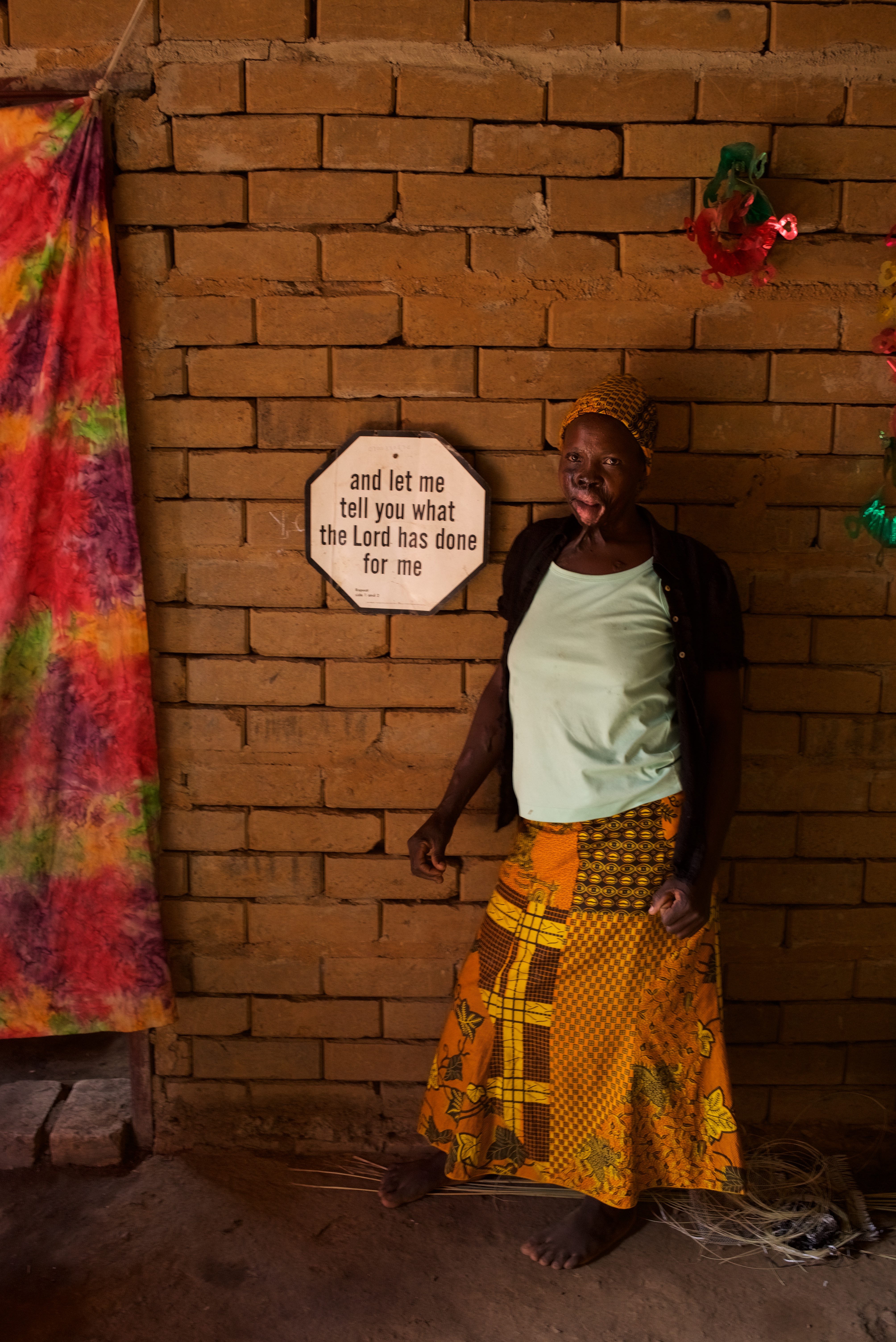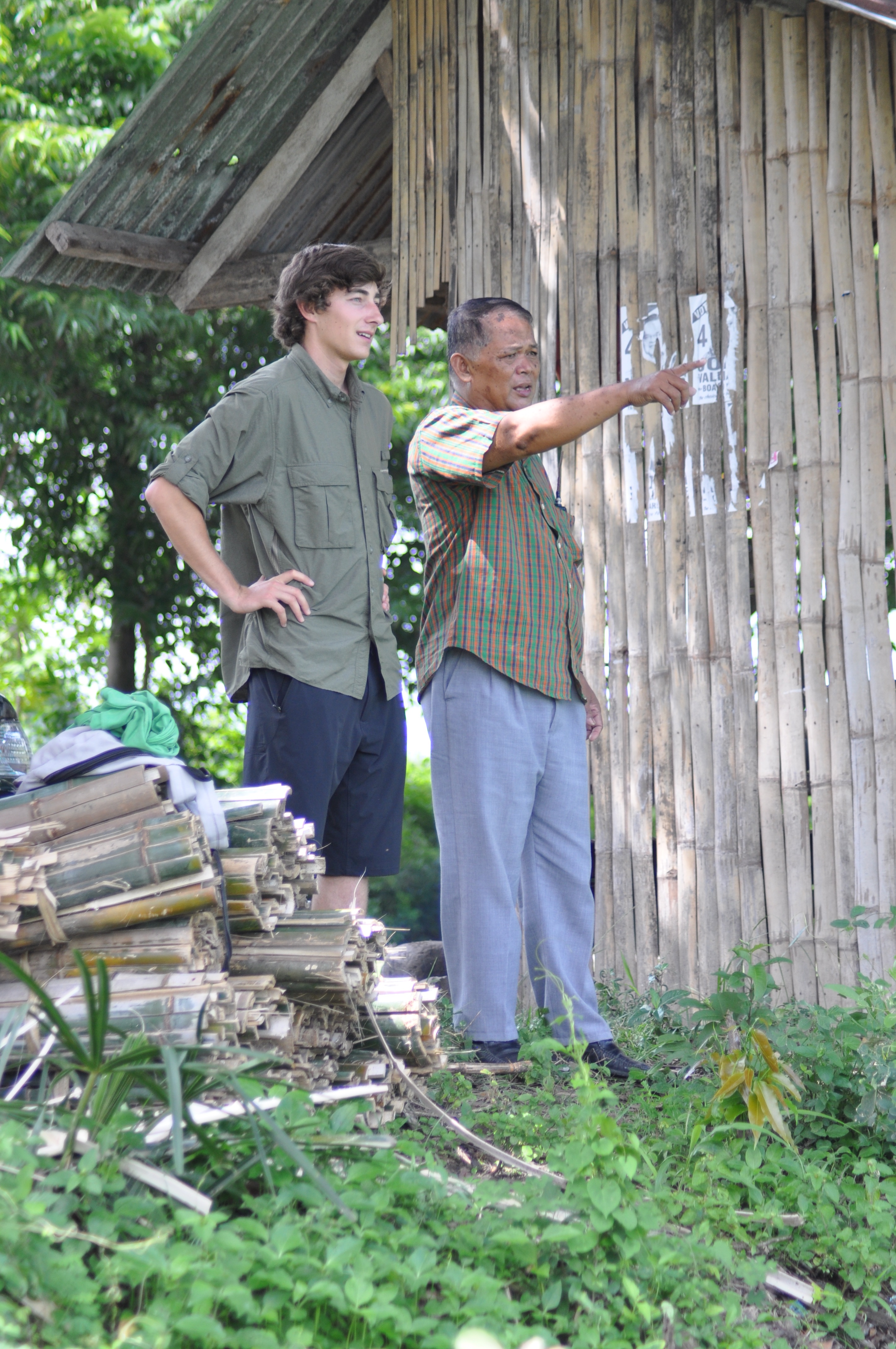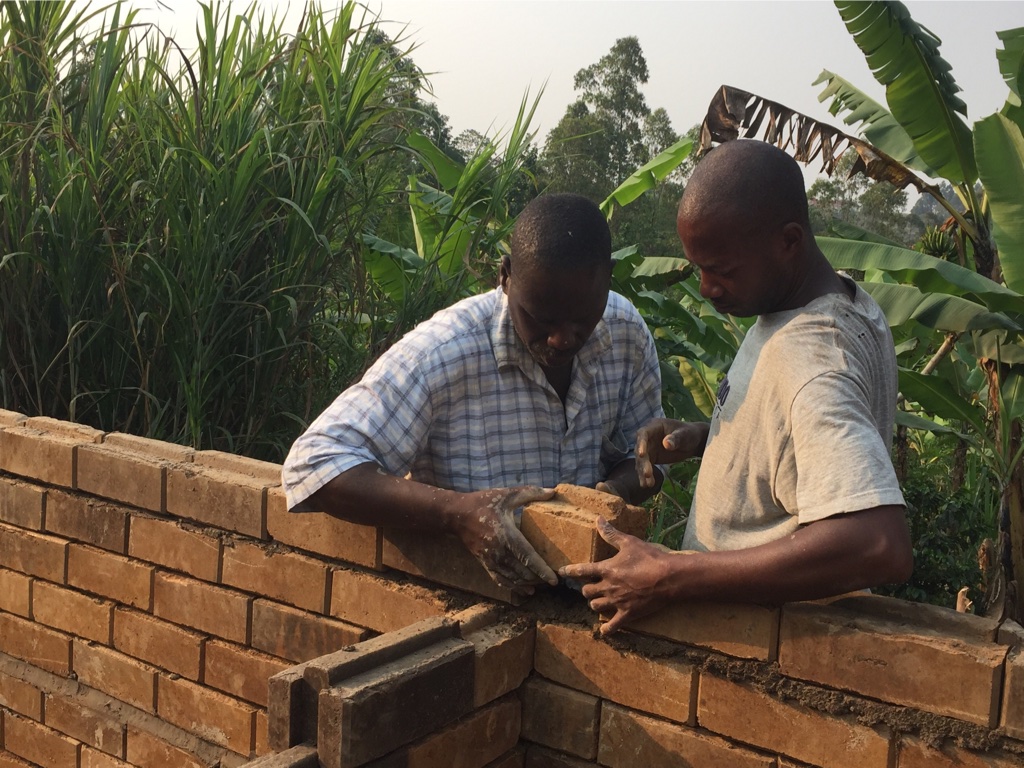Solving poverty in impoverished communities is no easy task. Poverty is present everywhere we minister. Giving people welfare relief may have an air of compassion but we have recognized that it could hurt them in the long run. How does White Fields address this portion of our ministry to become a solution instead of compounding the problem?
We have applied biblical principles into the ongoing ministry of our churches. The Bible gives us a road map to disciple new believers and to administer relief in a way that creates a growing economic recovery among the members of the church that spreads through the whole community and brings change to everyone in that region.
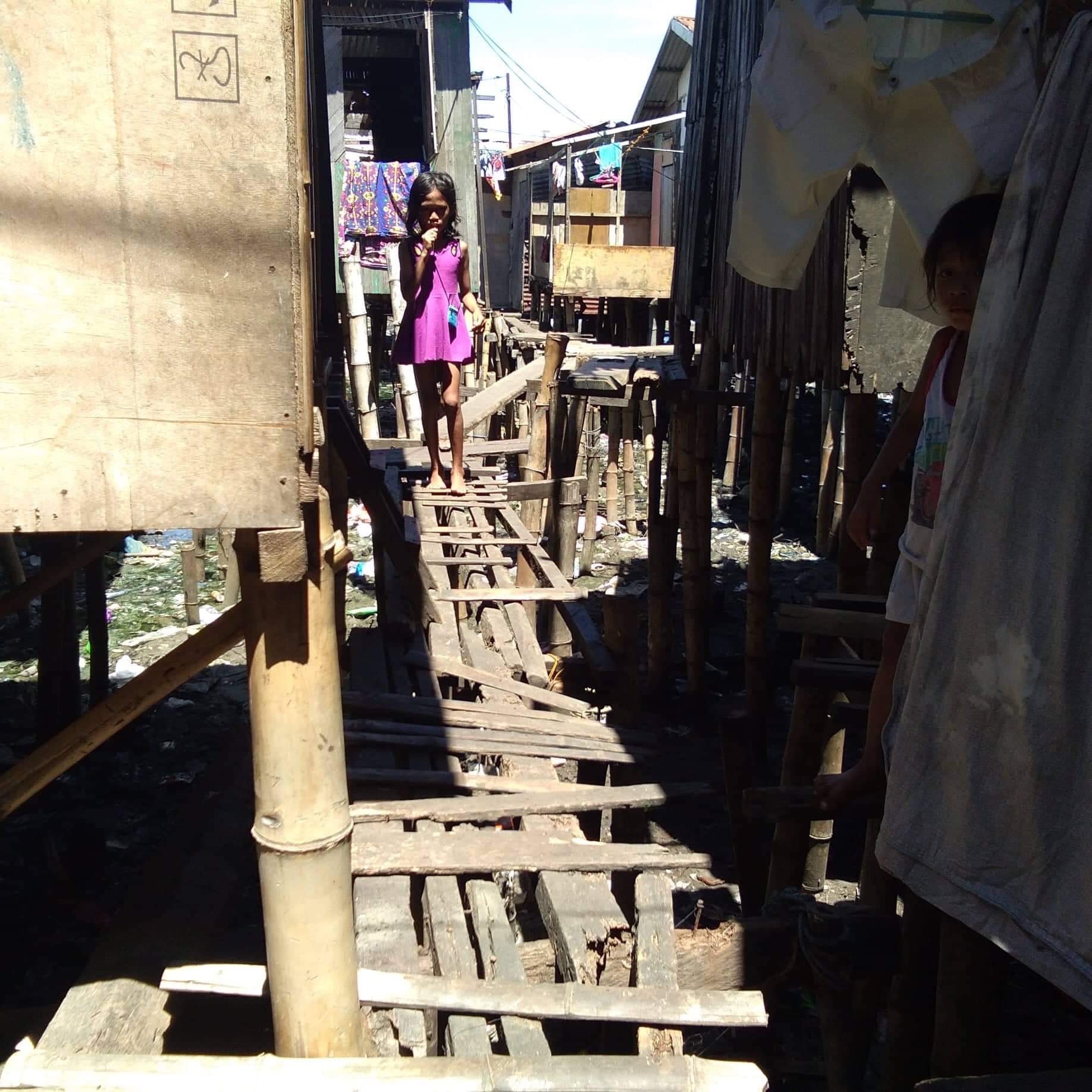
People get into poverty for many different reasons. Some live in countries full of corruption and oppression that has caused widespread poverty. Sometimes drought or other environmental hardships has created difficult situations. We could identify a lack of education and resources, or laziness and bad choices blaming the individuals themselves. But, identifying the cause does not initiate a solution. The first step to solving poverty begins with proclaiming the gospel of Jesus Christ. We may initially provide deliverance to everyone living in an impoverished community; food provided to people suffering from starvation showcasing the generosity of the local churches, but the proclamation of the Good News and the delivery of relief are given boldly in the name of Jesus as a single act of compassion.
Different Problems Require Different Actions
In our ministry, we separate between the act of relief to starving people and the establishment of a micro-enterprising solution to poverty. When able, we may show generosity to everyone in a community with a gift of maize and beans when they are starving, regardless of their relationship with Jesus Christ. But, following the start of the church with the new believers, there is another program to solve the poverty in their community. There are reasons why our Poverty Solution works.
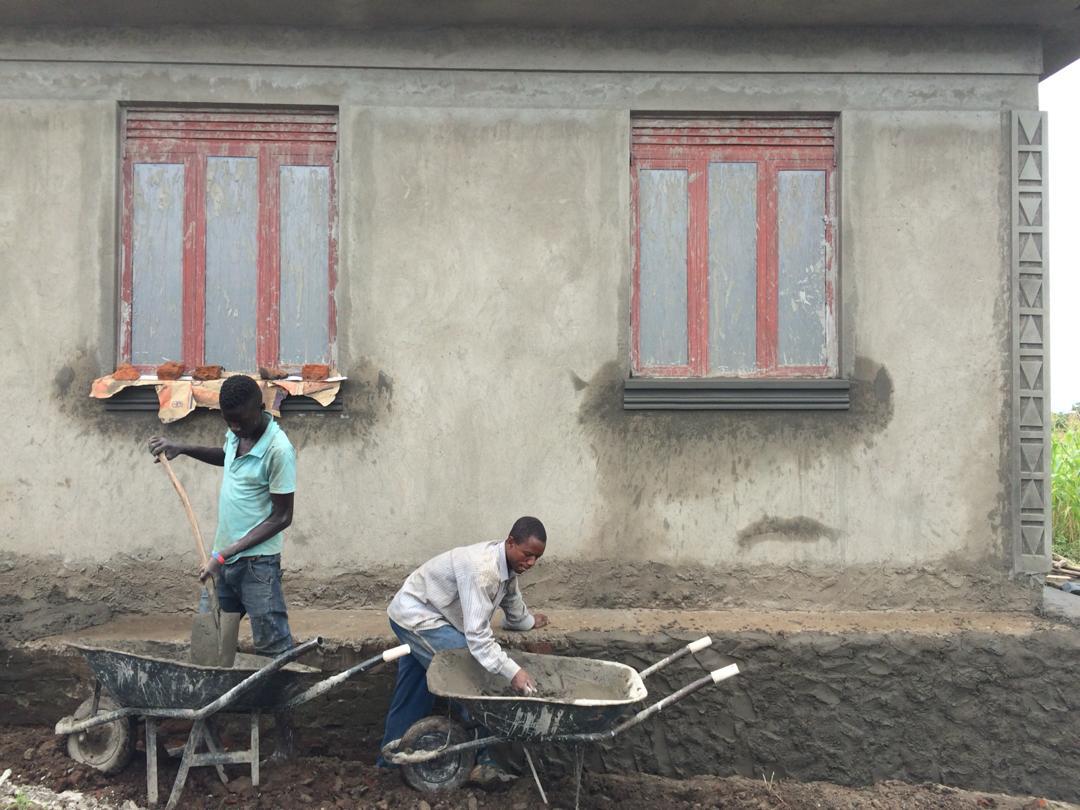
Tools Provided 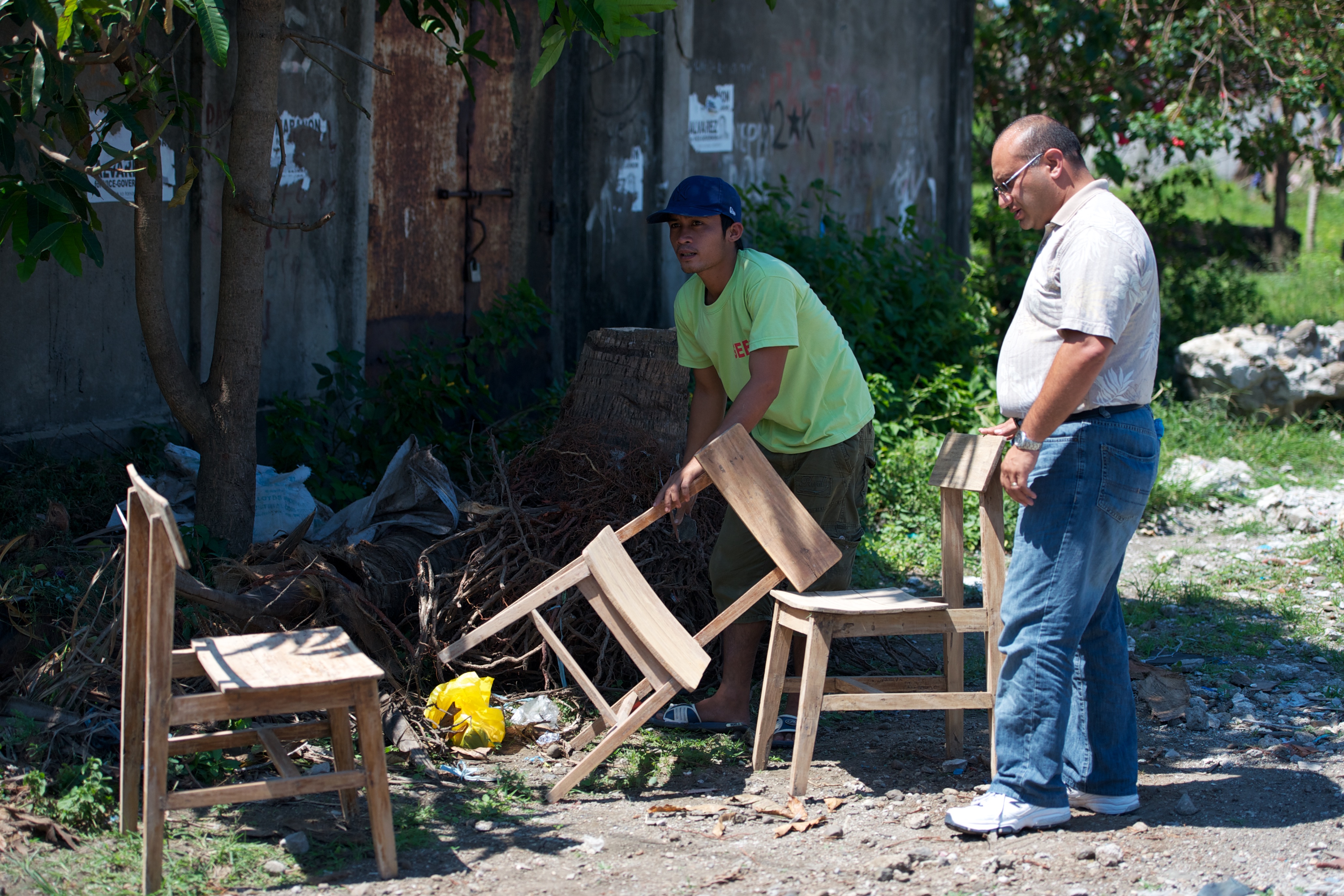
Materials to Manufacture 
Even Children Help
Given to the Right People
First, the gift of these enterprise items — a pig, goat, or construction equipment — are provided to believers in the church who have demonstrated the fruit of a life transformed by the power of the gospel. The Apostle Paul wrote to the Thessalonian church regarding “brotherly love” — he urges the brothers, “To work with your hands, as we instructed you, so that you may walk properly before outsider and be dependent on no one.” [1 Thessalonians 4:11,12] The beginning stage of discipleship for new believers in impoverished communities is to become workers. We often hear testimonies that the first change in the life of a drunkard who comes to faith is that they want to become sober and start working to provide for their family.
In his second letter to the same church, Paul expressed that idleness leads to problems and should not be acceptable to the church. Paul expressed clearly how poverty relief should not be given to idle people,
“If anyone is not willing to work, let him not eat.”
2 Thessalonians 3:10
I heard someone share that a friend responded to our Poverty Solutions Gift Catalog by saying, “That doesn’t work, they just sell the pig and buy booze.” That is indeed what an unregenerate drunkard would do with a generous gift. That is why in our program, we only provide the micro-enterprising gift to a genuine believer who is willing to work and become productive. To solve poverty, the members of the church must be able to work and make a profit in the business they manage. We do not enable drunkards and sluggards – if they are unwilling to work their hunger may cause them to look to the gospel for real transformation.
Skill Development
Second, the initial start-up of a new business must come with training and management which is why our churches have skilled managers who visit the homes of the recipients to ensure that the pig or goat is being cared for and remains healthy. In the construction trades, we provide skills training and then put them to work on projects to advance the ministry while providing a salary so they will gain more practice.

Training in using a binder 
Our manager checks the health of a pig 
Instructions to a widow
Right alongside biblical discipleship is training in work ethics and skills management. The Christian business leaders in the church provide opportunities to learn work skills as the new believers begin growing in sanctification, and as they demonstrate faithfulness to new behavior in their walk with the Lord. The trustworthiness is measured in small projects at first to allow the demonstration of faithful fruit, and then larger projects follow.
Solving the Deeper Problems
Third, we focus on the ultimate long-term goals to solve poverty in a community. Americans usually see poverty as the lack of material items needed for comfort or sustaining life. In surveys provided to American church members, the responses to photos of poverty are that the people lack proper clothing, or they look hungry, or their house is made out of sticks and mud. They see the material things people are lacking. The resonating idea is that if we provide them with food and clothes, and a better house—then they will no longer be poor.
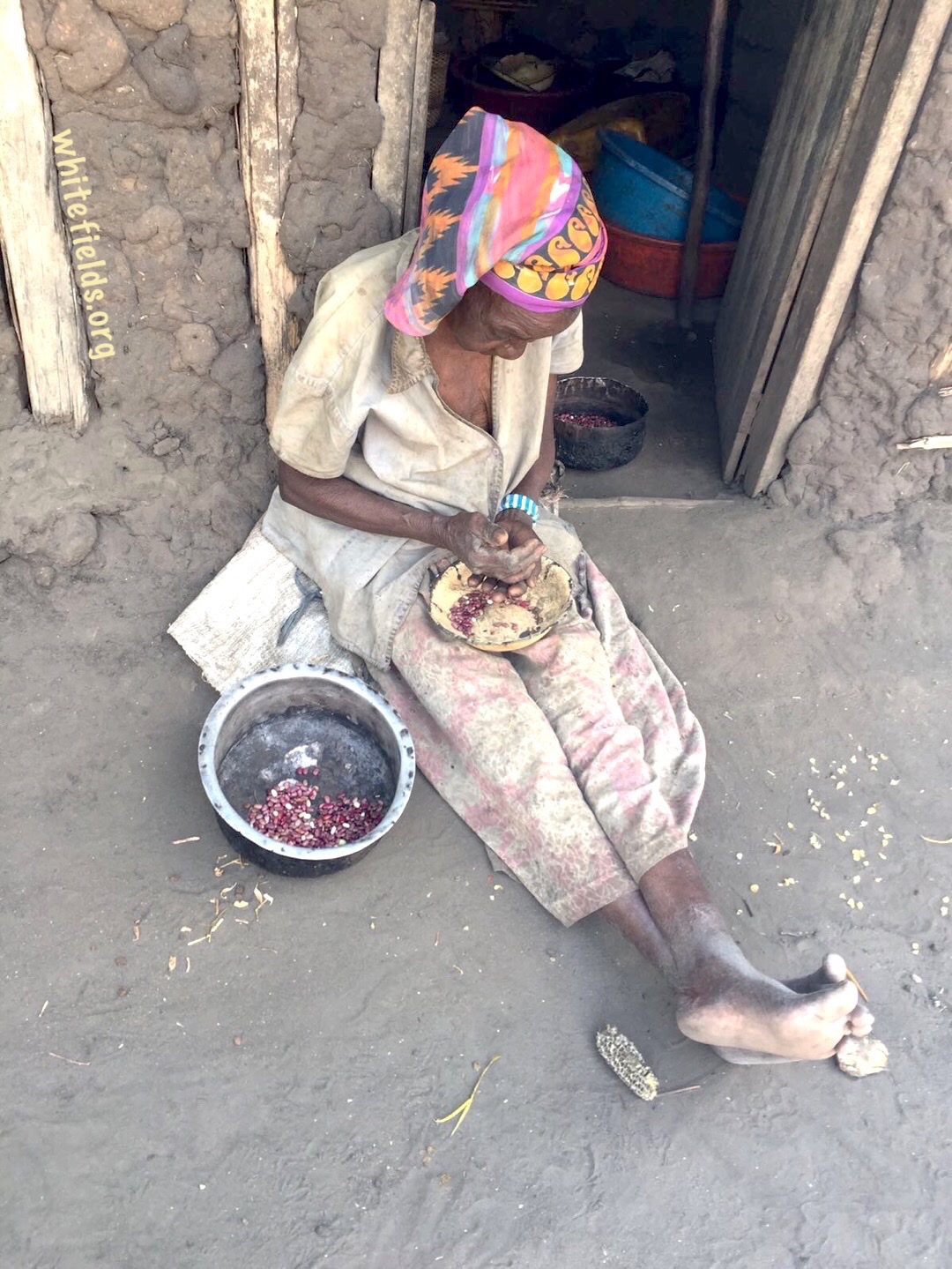
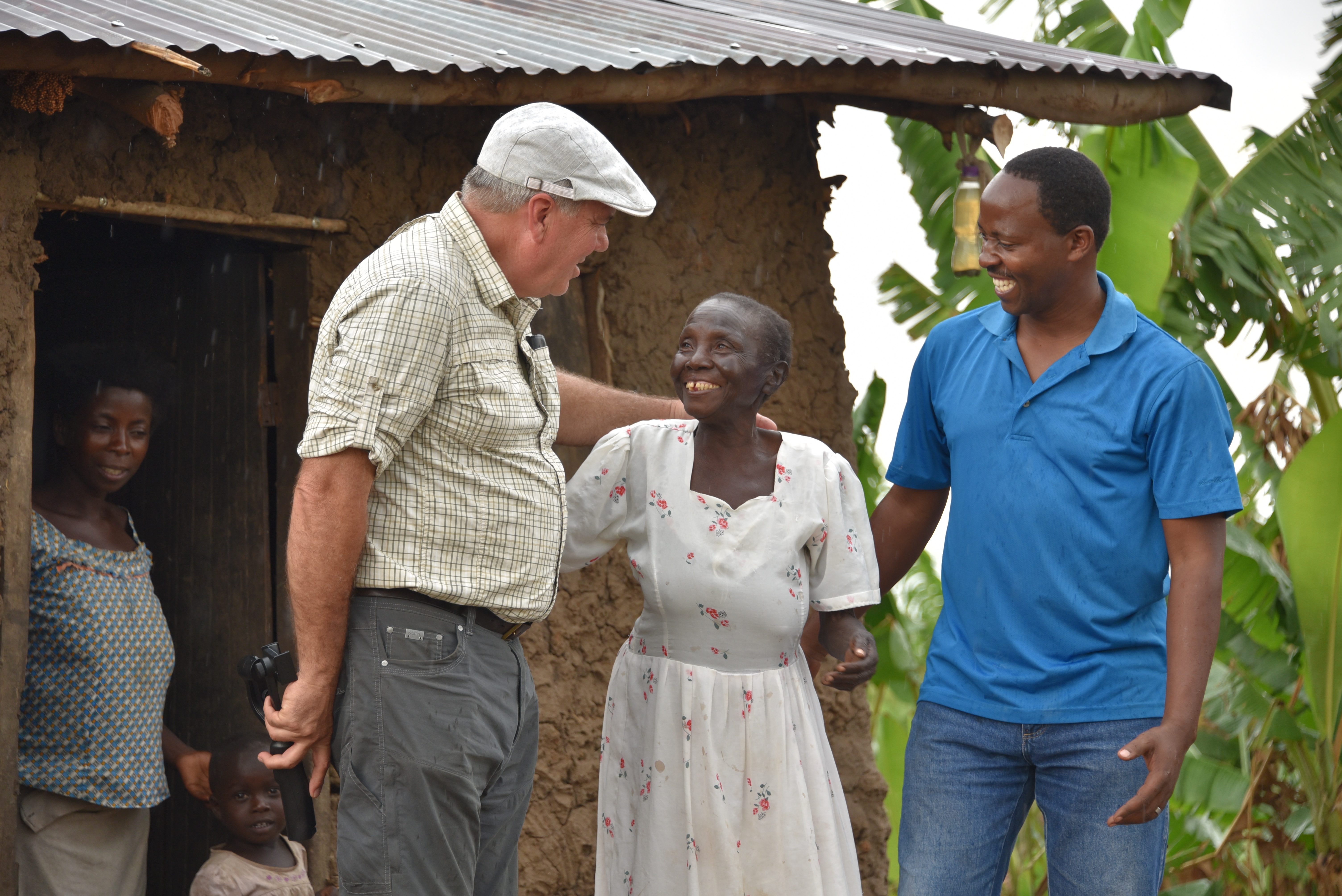
Joy comes from solutions 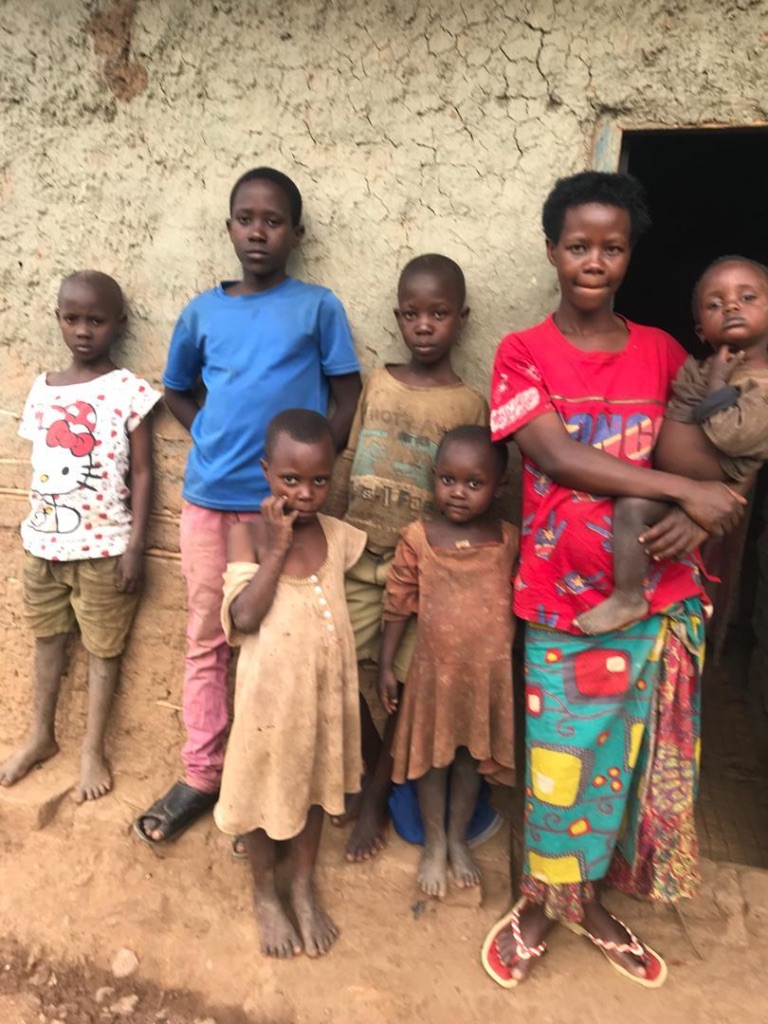
Do you see Opportunity
The impoverished people that I have listened to share something more profound in what they lack. They identify not only physical deficiency but also spiritual deprivation. Here is a sample of what they have shared with me:
- They have no dignity and feel rejected because they cannot provide food for their children.
- They are discouraged and feel hopeless because their children cannot attend school, this also leads them to feel that they are bad parents and their children will remain in poverty too.
- Because they cannot help sustain their church ministry with financial gifts in the offering, they don’t feel like an authentic member of the church.
- They miss out on the blessings of the Lord because they have little with which to be generous to those who are even poorer around them.
Our Poverty Solutions ministry extends beyond the physical into the more in-depth solutions to these spiritual longings. We assist the believers in becoming producers in their local economy. Through their work and effort, God blesses the labor of their hands, and in return, they give God the glory for the results.
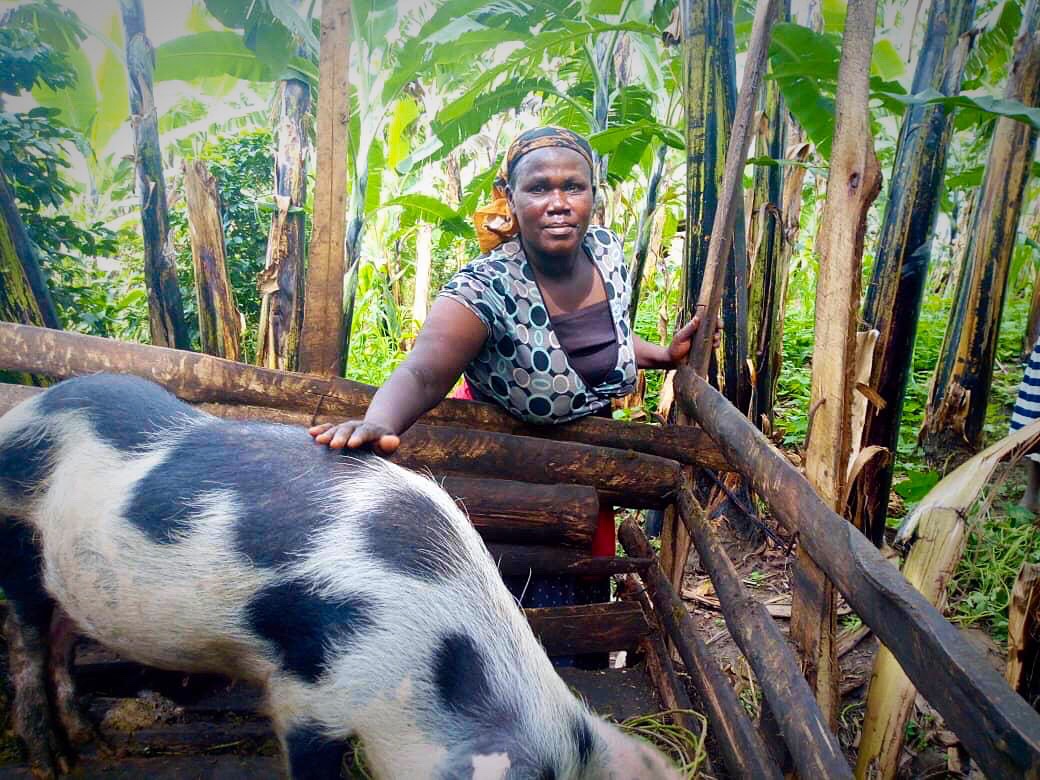
- A mother lifts her head with dignity; encouraged because her labor has resulted in a profit that she can use to pay the school fee for her daughter to attend classes.
- Irene was a single mother in debt, trying to feed and educate her children. When she received a pig, her first litter of nine pigs was sold and funds used to pay off all the debt that kept her in bondage. The second litter was ten pigs. Eight were sold and funds used to pay for food, education and a donation to church—two pigs were given to more impoverished members of the church so they can now begin a pig-raising business.
- A father was mean and always drunk. When he came to faith, he got sober and now he brings home food for the family. All his children are thankful that a church came to their village. The whole family attends church together.
Work to Earn
Fourth, Our solutions make people producers. They work! That is, the people themselves work! And that process causes economic growth. When a member of the church begins their business, they are doing the work themselves. As they multiply the results of their labors, they begin to hire other members of the church to help, and that provides a salary to those with less education. It also opens the door to modeling a proper employer to employee relationship. I’ve heard many people share that non-Christian employers would mistreat and cheat their workers, but there is no recourse for a poor person, they have no standing to receive justice. Now, as more church members grow their business, they treat their employees with good biblical business practices, and their businesses are developing and producing a good profit. This becomes a witness to the whole community that God will bless when you are using biblical business practices.
The Gospel is Proclaimed
Finally, maybe the most essential principle in our Poverty Solutions is that it is an open door to spread the gospel.
- We have heard the testimony of people who came to faith because they saw their neighbor enrolled in our Poverty Solutions Ministry, Although they were still very poor, they were being generous from the fruit of their labor.
- New Bible studies begin because neighbors are amazed at the transformation of their neighbor who is a new believer now and how well the Christian parents start caring for children.
- After a drunkard becomes sober and the father completely changes his lifestyle—working with his hands to grow food and care for his family, people take notice and want to hear the gospel.
- When parents can afford, by the work of their labor, to pay for their children to attend school, there is an appreciation for education and the parent values the gift the children are receiving.
Become the Solution
Let me explain how you can participate and help advance the ministry. You may have the time and the ability to travel into one of our impoverished villages and pass along your skills to those eager to learn.
A farmer can observe the crops growing and pass knowledge about better seed varieties or better patterns for irrigation.
A construction worker can bring tools and pass along skills in electrical, plumbing, welding, or masonry.
A college business student may spend a summer abroad with one of our pastors initiating a business among the local church members using the knowledge they are learning in college to apply and transfer to the local community.
However, you do not need to travel into the villages to help. We need resources to advance more projects. We can start more businesses among the churches in our network if we have the start-up capital to provide the initial necessities to get them started. You can donate toward our Poverty Solutions ideas, and we will manage them wisely by connecting your gift with a prepared believer in the church to make the best use of the gift. Gather some friends at church and join together to reach one of the goals towards starting a Poverty Solution Business.
Poverty Solutions Online Store
Your financial support for the church planters is also essential. The church is the foundation for the whole solution. We proclaim the gospel first. Biblical training of the new believers is paramount to a real transformation of a community. The Poverty Solutions follow upon that groundwork and begins to make the church sustainable.
Your prayers are also crucial. Jesus said, “For you always have the poor with you, and whenever you want, you can do good for them. But you will not always have me.” Some have taken this to mean that you will never solve poverty, and we should only focus on spiritual things like preaching the gospel devoid of any humanitarian assistance. The leaders of White Fields believe God is honored when we do both. We preach the gospel, and we assist people in transforming their community by the efficacious grace of God energizing those new believers into faithful Christ-followers.
Don’t Give Up!
There may be others who recognize that poverty has always existed and will always be with us, so discouragement sets in when the attempt to solve poverty does not result in a solution for everyone at the same time in the whole world. We believe that God will honor the effort in our churches in our communities as we diligently apply ourselves to the task in front of us.
“And let us not grown weary of doing good, for in due season we will reap, if we do not give up. So then, as we have opportunity, let us do good to everyone, and especially to those who are of the household of faith.” [Galatians 6:9,10]
Galatians 6:9,10
Don’t give up helping the poor because the problem is so big. Instead, remember what I often share with my friends.
- How do you eat an elephant? — One bite at a time.
- How do you accomplish a long journey? — By taking the first step.
- How do you build a brick building? — By laying one brick at a time.
Solving poverty begins by teaching and providing for one family in one church with the ability to earn their food, donate to their church, to educate their children, and practice generosity. Then provide for another family, and then another, and another—eventually a whole church is dynamically impacting their community for Christ. Together we can make a difference in many communities.

